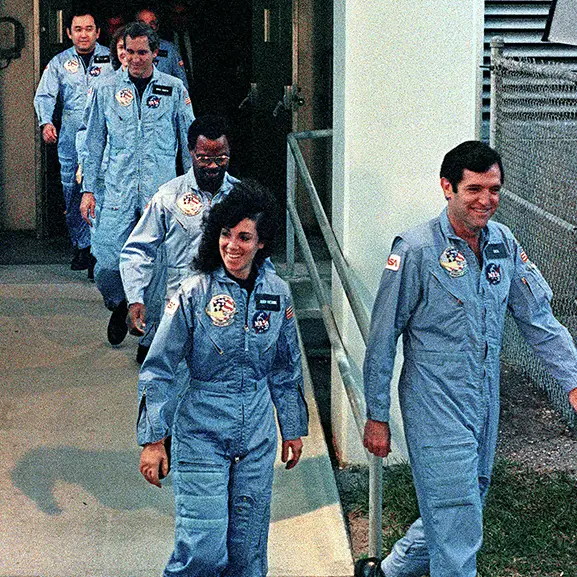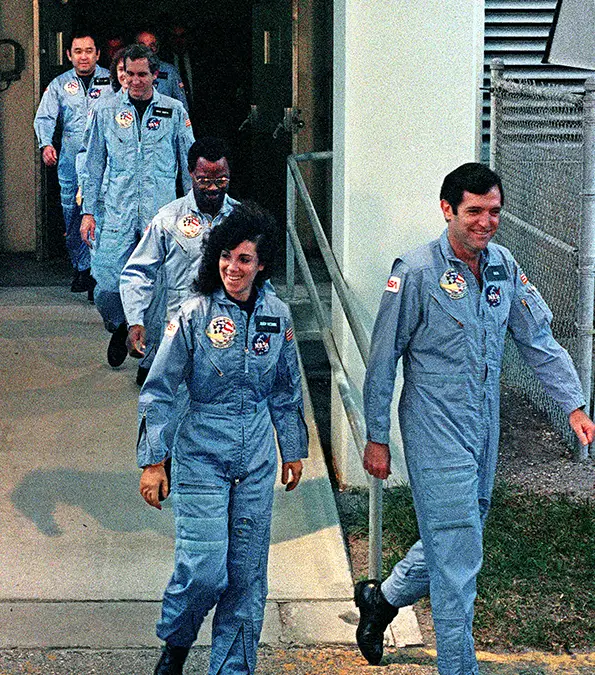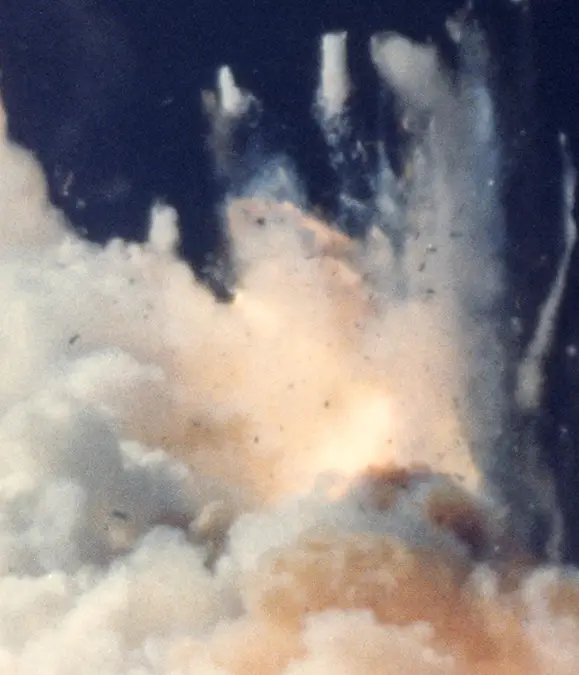
The final words of seven crew members who lost their lives in the disastrous explosion have been revealed.
On 28 January 1986, Sharon Christa McAuliffe, a social studies teacher from Concord High School in New Hampshire, boarded NASA's Space Shuttle Challenger.
She was elected as the first schoolteacher for NASA’s 'Teachers in Space' program and was to reignite public interest in space exploration.
On the morning of the launch, the crew was transported almost twenty stories up the launch tower in a high-speed elevator.
Advert
As they donned their spacesuits and helmets, the shuttle’s outer tank released a stream of boiling liquid oxygen from beneath the conical beanie cap at its tip.
The astronauts stepped inside the shuttle and the hatch shut behind them.

It was nearly 11:30 am when students nationwide and families of the astronauts gathered to watch the launch on the black-and-white TV.
With millions watching with sheer excitement, the Challenger launched. However, after just 73 seconds, the shuttle was engulfed in flames, engulfing the sky in smoke.
Tragically, all seven members of the crew perished, namely, McAuliffe, Commander Francis R. Scobee, Pilot Michael J. Smith, Mission Specialists Ellison S. Onizuka and Judith A. Resnik, and Payload Specialist Gregory B. Jarvis.
Seven seconds into the flight, Smith’s voice was captured on the operational recorder saying, 'Go, you mother.' The transcript of which has been publicly shared by NASA.
Judy Resnik then exclaimed: 'Sh*t hot!' to which Scobee responded, 'Ooohh-kay!'
But something was wrong.

At 58 seconds and 35,000 feet above ground, a spark exploded through a joint at the bottom of one of the boosters.
'Feel that mother go!' said Smith. 'Wooohooo!' 'Challenger, go at throttle up,” the CapCom radioed from Mission Control. 'Roger, go at throttle up,' said Scobee, 70 seconds after launch, according to The Washington Post.
In a few moments, the flame gathered at the booster spread into the outer tank, burning its insulation. Three seconds later, Smith said, 'Uh-oh'- the last words heard on the spacecraft.
Massive amounts of liquid hydrogen rushed through the engines. And at 73 seconds, the transmission from the failing spacecraft came to a sudden stop. And the crown that had been cheering watched a moment of pure horror and a tragedy that would never be forgotten.
After three months of operation, the human remains and moss-covered silver fragments of the shuttle were recovered from the ocean floor.